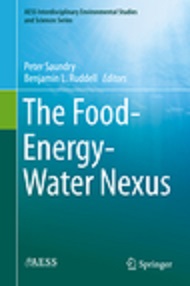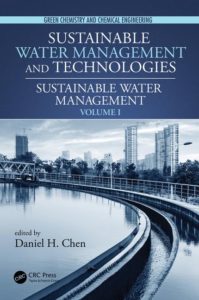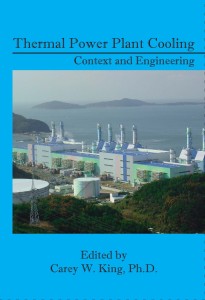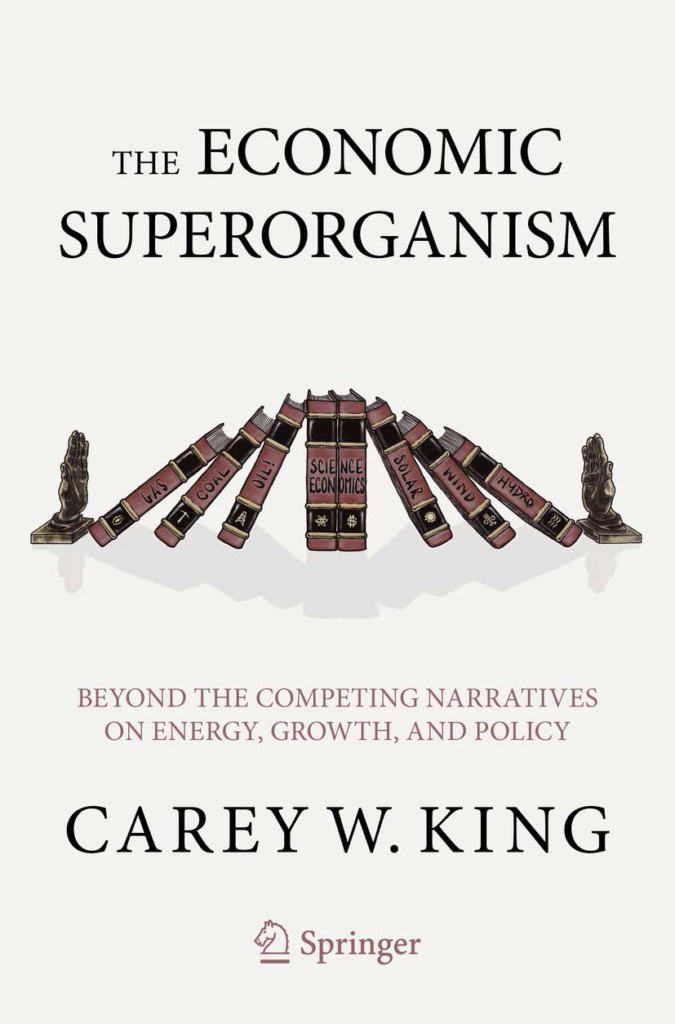Authored Books
The Economic Superorganism:
Beyond the Competing Narratives on Energy, Growth, and Policy
(available at fine book stores online: Springer, BookPeople (local Austin), Amazon, etc.)
Listen to book interviews and podcasts:
Marketplace, Macro N Cheese, Energy Transition Show, Steve Keen & Friends (Jan. 2023, Sept. 2023), USAEE podcast (“The Economy as a Superorganism”: Dec. 2020), Power Hungry podcast, You Don’t Have To Yell (May 2022, December 2022), Financial Insights podcast (November 2020, November 2021), Planet Critical, & Energy Central (Texas Book Festival 2021, no longer online)
Book Reviews by Advisor Perspectives (Dick Vodra), Reslience.org/Mud City Press) (Frank Kaminsky), & Economics From the Top Down (Blair Fix)
Praise for The Economic Superorganism:
“Carey King has produced a very valuable overview of energy issues, together with their economic, social, general business and financial implications.”
— Professor Michael Jefferson, ESCP Europe Business School, Former Chief Economist, The Royal Dutch/Shell Group
“The Economic Superorganism is a deep meditation on the facts and fictions around energy, food, economic and climate systems past and future. King has a deductive approach that assumes nothing but intelligence.”
— Raj Patel, Research Professor, University of Texas at Austin
“The Economic Superorganism convincingly explains how and why economics must be forced to confront the essential role of energy, fossil or renewable, in industrial civilisation and the dilemmas that poses for our growth-obsessed social system.”
— Professor Steve Keen, Distinguished Research Fellow, Institute for Strategy, Resilience and Security, University College London
Additional Praise for The Economic Superorganism
Back Cover
Energy drives the economy, economics informs policy, and policy affects social outcomes. Since the oil crises of the 1970s, pundits have debated the validity of this sequence, but most economists and politicians still ignore it. Thus, they delude the public about the underlying influence of energy costs and constraints on economic policies that address such pressing contemporary issues as income inequality, growth, debt, and climate change. To understand why, Carey King explores the scientific and rhetorical basis of the competing narratives both within and between energy technology and economics.
Energy and economic discourse seems to mirror Newton’s 3rd Law of Motion: For every narrative there is an equal and opposite counter-narrative. The competing energy narratives pit “drill, baby, drill!” against renewable technologies such as wind and solar. Both claim to provide secure, reliable, clean, and affordable energy to support economic growth with the most benefit to society, but how? To answer this question, we need to understand the competing economic narratives, techno-optimism and techno-realism. Techno-optimism claims that innovation overcomes any physical resource constraints and enables the social outcomes and economic growth we desire. Techno-realism, in contrast, states that no matter what energy technologies we use, feedbacks from physical growth on a finite planet constrain economic growth and create an uneven distribution of social impacts. In The Economic Superorganism, you will discover stories, data, science, and philosophy to guide you through the arguments from competing narratives on energy, growth, and policy. You will be able to distinguish the technically possible from the socially viable, and understand how our future depends on this distinction.
Edited Books and Chapter Contributions
 |
 |
 |
| 2020 | 2017 | 2014 |
Additional Praise for The Economic Superorganism
Growth-addicted politicians and bureaucrats are running planet Earth on premises and Principles drawn from the ecological vacuity of neoliberal economics. As Carey King deftly reveals, this is analogous flying a 787 Dreamliner using the intellectual equivalent of a 1955 Volkswagen Beetle driver’s manual. Dr. King’s message? There are real limits to growth; humanity has exceeded them and is dissipating the ecosphere.
— William Rees, Professor Emeritus and former Director of the School of Community and
Regional Planning at University of British Columbia; creator and co-developer of ecological
footprint analysis
There is no aspect of sustainability more important than energy, and no topic in energy more important than depletion. The prospect of oil that is unavailable or unprofitable (in money or energy) raises questions of limits to growth. Technological optimism asserts that market forces and ingenuity will overcome all such limits. Technological realism asserts that limits are real and constraining. In exploring this debate, Carey King’s The Economic Superorganism is a book that will endure in relevance.
— Joseph Tainter, Professor of Environment and Society, Author of The Collapse of
Complex Societies
This book is panoramic in its vision of recasting economic discourse in biocentric terms reminiscent of the Gaia hypothesis. However, Dr. King uses naturalistic and thermodynamic metaphors not only as primers for energy policy reform but also as a critique of the predatory nature of current economic policies. By using an eclectic narrative style, speckled with theoretical excursions, as well as pithy public policy examples, the book is readable by the scholar and the informed citizen, willing to question the orthodoxy of natural resources management within contemporary economic doctrines.
—Saleem H. Ali, Blue & Gold Distinguished Professor of Energy and the Environment,
University of Delaware
Economics tells society what matters in the production of wealth and how to organize its distribution. In the natural sciences, theoretical errors are usually quickly revealed by experiment or smarter theoreticians and normally only damage some careers. In economic theory, however, fundamental errors that affect political practice will be revealed by experience only after they have resulted in misery for many people. In his book The Economic Superorganism Carey W. King addresses the basic facts and data on energy that are necessary for a proper understanding of energy’s pivotal role in modern economies. He indicates the weak points in the narratives of mainstream economics, which hardly cares about fundamental natural laws, and he presents options for the future we may choose. The book is well written, and the reader feels the intellectual fire that moves its author. I highly recommend it, especially for those who wonder where we should go.
— Dr. Reiner Kümmel, Professor of Theoretical Physics, University of Würzburg
The fate of civilization may be decided by energy policy, climate policy, economics, and physics-but each of these fields of study and domains of action is complex, and they interact in ways that are even more complicated and poorly understood. Carey King has done a magnificent job of untangling, sorting, analyzing, and explaining. Some of his conclusions may be surprising or controversial, but they are well grounded in data and logic. This book deserves to be widely read by energy and climate scientists, policy makers, reporters, and economists.
— Richard Heinberg, Author and Senior Fellow of the Post Carbon Institute
The Economic Superorganism offers a fresh perspective on the sometimes heated, sometimes myopic policy debate over the feasibility of a green energy transition. By backing out and taking a broader view of the interactions among physical, economic and other social systems, Carey King illuminates the important trade-offs at the heart of such a transition.
— David Spence, Baker Botts Chair in Law, the University of Texas at Austin School of
Law
In The Economic Superorganism, Dr. Carey King treats the global economy as an organism, albeit a very large one, but still subject to the laws of nature as are all other organisms. He does this by discussing alternative narratives about the future of energy, the economy, and human society. The text uses non-technical language so that it should be understandable to a wide range of readers. Rather than come to strong conclusions, he lays out the basis for various narratives and invites readers to think about what these different viewpoints imply for our future society. This is a must read for those thinking seriously about our future, but be forewarned, you will likely have to rethink your own views.
— John Day, Distinguished Professor Emeritus, Dept. of Oceanography and Coastal
Sciences, School of the Coast & Environment, Louisiana State University
We live in a time of increasing fracture and divisiveness. Younger people today probably never lived at a time when the main means of resolving political, social, economic or other issues was discussion, the marshalling and considering of facts used in support of various positions, consensus, with a certain deference to science as a means of sifting through different positions, interpretations or prejudices. Increasingly this is no longer the case. The positions, often with no connection to principles, are well understood from the political position of one party, one element of society or even one person. It seems anachronistic to read of past students in college engaging in debate clubs, and even (long ago) being forced to take courses in elocution (meaning, basically, making your argument). But today’s arguments, or at least one’s position, often seems to be decided before the start and is often decided by whomever has the most political power. Often science is used by one side or another to justify whatever position is maintained. That is not the proper role of science, which is, or should be according to most of the gatekeepers of scientific process, to test hypotheses, not to defend a predetermined position.
This is a book about disagreements, mostly relating to energy and its role in economies, where disagreements are rife. As such it is a refreshing perspective within a branch of science I am particularly familiar with. It is a wealth of good basic information and insights about energy and its role in society. Each chapter tends to explore a major issue where different points of view, which King calls different narratives, exist. The range is quite large, both in terms of importance (climate change), scale (global to local coal burning) and relation to different philosophical groups (economic growth vs environmental protection). It contains many perspectives that readers will find rather shocking (renewable energy sometimes uses more non-renewable resources than fossil fuels; conventional economics often leaves out critical economic information such as debt).
Perhaps most importantly, the book contrasts the difference between the physical laws of nature (which appear immutable) and the laws of humans, which may or may not be consistent with the laws of nature, setting up the most important difference, or incompatibility, of the book. This sets up one of the few conclusions in the book “not only can we use both social rules and physical laws to assess the constraints and possibilities for future energy and economic scenarios, we absolutely must”. King does not decide between the possible positions for the reader, but lets the reader decide. By giving all sides a chance to air their arguments it is a useful exercise in what young people training to enter science find later in their lives. It also demonstrates how some arguments are won or lost by changing the subject, rather than via better science or better quantitative analysis, I thought (probably naively) would be the case.
— Charles A. S. Hall, Professor Emeritus, SUNY College of Environmental Science and
Forestry
Is economic output constrained by Earth’s boundaries, or limited only by our imaginations? One would hope that by now such competing economic narratives would have given way to definitive conclusions, but unfortunately most economists have not even begun to consider the links between economic activity and energy usage on a finite planet. Carey King’s The Economic Superorganism convincingly explains how and why economics must be forced to confront the essential role of energy, fossil or renewable, in industrial civilisation and the dilemmas that poses for our growth-obsessed social system.
— Professor Steve Keen, Distinguished Research Fellow, Institute for Strategy, Resilience
and Security, University College London
Carey King has produced a very valuable overview of energy issues, together with their economic, social, general business and financial implications. He points to two positions which can be taken on where future energy scenarios may lead us. Position 1 is that all open discussion of science, engineering, and economic analyses of how to transition to more use of renewable energy is a good thing. That is to say, more discussion leads to more accurate analyses in the long-run, and we want the most accurate analyses as possible. If this discussion involves a lot of both good and bad information exchange during the process, then that is OK because that is just the scientific process going through its motions. This is his position. The alternative, Position 2, is that open discussion of disagreement on the technical and/or feasibility of increasing the use of renewable energy is a bad thing because it gives ammunition to fossil fuel advocates. He goes on: quite simply, fossil fuel advocates can claim support for the view 100% renewable energy is not possible. In support of his view, King goes into basic energy-related concepts such as the laws of thermodynamics, power density and Energy Return on Investment, as well as into the history of energy resource use and its human well-being and financial implications past, present and possible future.
— Professor Michael Jefferson, ESCP Europe Business School, Former Chief Economist,
The Royal Dutch/Shell Group
The Economic Superorganism is a deep meditation on the facts and fictions around energy, food, economic and climate systems past and future. King has a deductive approach that assumes nothing but intelligence, and calls on his prodigious skills in engineering, energy and systems science. Students in these and many other disciplines will profit from engaging with this novel and urgent analysis.
— Raj Patel, Research Professor, University of Texas at Austin
In The Economic Superorganism Carey King outlines a novel system to organize economic decision making and to evaluate outcomes. Using years of his and others’ research, he points out the connections between income, consumption and the effect energy has on the economic system we operate within. Looking at the abstract data points he takes the next step, which many economist do not do, of connecting it to real life outcomes we observe in our daily lives … our collective ability to earn less, poverty and homelessness increasing, students coming out of college unable to support themselves or build a household of their own, debt piling up and drowning the middle class …
By taking a different analytical approach of the “economic superorganism” as King offers, policymakers can stress-test assumptions that have previously been left out of the discussion. This can lead to better qualified, more effective decisions. Knowing where to allocate capital, and what effect those allocations could have will be helpful in effecting real change and progress.
Full review and disclosure: https://jamesacox.com/2020/05/15/energy-economictrends-and-effecting-change-a-review-of-the-economic-superorganism/
—James Cox, First Financial Group
(Disclosure Statement Links to other sites are provided for your convenience in locating related information and services. Guardian, its subsidiaries, agents, and employees expressly disclaim any responsibility for and do not maintain, control, recommend, or endorse third-party sites, organizations, products, or services, and make no representation as to the completeness, suitability, or quality thereof.
This material contains the current opinions of the author but not necessarily those of Guardian or its subsidiaries and such opinions are subject to change without notice. Registered Representative and Financial Advisor of Park Avenue Securities LLC (PAS). OSJ: 7101 Wisconsin Ave Suite 1200, Bethesda, MD 20814 301-907-9030 Securities products and advisory services offered through PAS, member FINRA, SIPC. CA insurance license #0I64535. First Financial Group is not an affiliate or subsidiary of PAS or Guardian. Guardian, its subsidiaries, agents, and employees do not provide tax, legal, or accounting advice. Consult your tax, legal, or accounting professional regarding your individual situation.)
